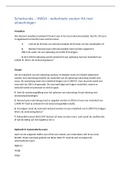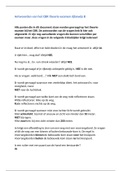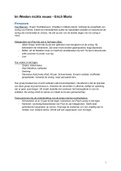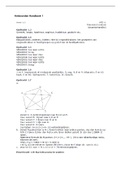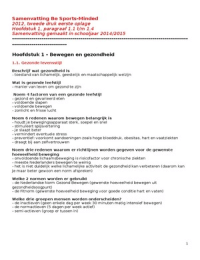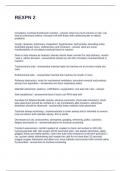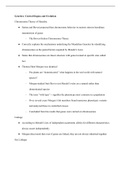Lecture 1: GREECE 1
Outline:
I. Who should Rule?
II. Plato on Expert Rule
III. Aristotle on Lotteries/Sortition
IV. This Course: Study suggestions
V. What is Political Theory?
I. Who Should Rule?
Some answers (not exhaustive):
The People: They constitute the state (sovereign?), nobody needs to revolt, fair...
The Elderly: Experienced, safe-guard tradition, risk averse...
The King/Queen: Constitutes the state (sovereign), decisive, birthright -luck
sanctified by God/tradition-, simple mechanism...
The Elect(ed) [president/cabinet]: Excludes the incompetent/impopulair, gives a
choice to the people or religious...
The Party: On the side of history, decisive, organized around common aim...
There is another option:
Expert(s)-rule or Epistemocracy: Presupposes that ruling
is a craft/skill or requires knowledge (or competence).
- ἐπιστήμη (Episteme) = knowledge
- κρατέω (krateo) = to rule
II. Plato on Expert Rule
Plato lived from 428?-347 BC in Athens. Mostly wrote dialogues: most of which feature
his teacher, Socrates, as lead character. Socrates was put to death by Athenian jury. He
also founded The Academy, that lasted 300 years. Would be teacher of the ruler/tyrant
of Syracuse, Dionysius II.
Brief Interlude on Athens: It was a so-called direct or popular democracy, the vote was
limited to free male citizens (about 30,000 people) and it excluded women, children,
slaves, and resident foreigners. They met in a regular assembly (ekklēsia), where all men
could participate; they voted (by raising hand), and spoke freely (isegoria). For
,important/urgent matters (ex: war) there was the boulē or council, which was
composed of 500 citizens who were chosen by lot and who served for one year. Also,
many magistrates were also chosen by lot.
The council:
+ Sat the agenda for the assembly
+ Oversaw the Athenian bureaucracy
+ It was the main jury/judges in trials.
+ => Unitary state
Cf: Separation of powers (Polybius [200 –118 BC]; Montesquieu [1689-1755]) De
l'esprit des lois. The poor were subsidized to do so.
Fifth and Fourth Century Athens:
- 492-449: Leading part of coalition (with Sparta) in the wars that defeated
Persians
- 478ff: Athens became leader of Delian league (Perikles): Voluntary, but it became
a de facto Athenian empire. Athens controlled the navy. The junior partners paid
tribute to Athens
- 431-404: Peloponnesian War: Plague & defeat
- 404/3: Thirty Tyrants: Led by Critias (a student of Socrates)
- 399: Socrates convicted to death after return of democracy
- 338: Athens defeated by Philip 1
● The Ship of State (Analogy):
“[1] The sailors are quarreling among themselves over captaincy of the ship, [2] each one
thinking that he ought to be captain, [3] though he has never learned that skill…[4] On top
of which they say it cannot be taught. In fact, [5] they’re prepared to cut to pieces anyone
who says it can….[6] They beg him [the ship-owner] and do everything they can to make
him hand over the tiller to them. [6*] Sometimes, if other people can persuade him and
they cannot, they kill those others or throw them overboard. [7] Then they immobilize their
worthy [stronger, but not too clever] ship-owner with drugs or drinks or by some other
, means, and take control of the ship, helping themselves to what it is carrying. [8] Drinking
and feasting they sail … [9] If someone is good at finding them ways of persuading or
compelling the ship-owner to let them take control, [10] they call him a real seaman, a real
captain, and say he really knows about ships.”
- Plato, Republic, 488b-d, Translated by G. Ferrari (Cambridge University Press),
p. 192
At least ten Platonic criticisms of popular democracy:
1. Democracy 🡪 dissensus
2. Self-rule generates overconfidence in each of us
3. Citizens lack expertise
4. The masses deny the very existence of political expertise
5. They threaten or kill anybody who claims intellectual superiority
6. Everybody wants to rule: this can generate murderous conflict
7. The masses incite revolutions and steal property
8. With the masses in control there is much rudderless pleasure
9. The people are susceptible to flattery and demagogues
10. The masses call demagogues ‘skilled’
Some Evaluative Comments:
● On [1] direct democracy generates dissensus because everybody can have a say
and be in control and [6] everyone, who will have different views, wants to be in
control.
Seems to presuppose that people adjust their desires to what's possible [adaptive
preferences]. That everyone wants to be in control is implausible. Even so, all
Socrates needs for the analogy to work is that sufficient people want to be in
control (seems more plausible).
● As an aside: Plato seems to have thought that the practice of direct democracy
revealed the (undesirable) fact of value-pluralism.
Value pluralism = existence of conflicting and incompatible values.
, Consequence of (i) the product of the diversity and inconstancy of human
desires/appetites [see 8]; and (ii) the lack of regulation of these in a commercial
democracy such as Athens.
Cf. Max Weber (1864-1920), by contrast, thinks value-pluralism is a product of
modernity, especially advanced division of labor.
● On [2] that self-rule always generates overconfidence in each of
us, is probably too strong. There are risk averse people → But that
ruling, without external constraint (other states' power, etc.)
creates overconfidence is not altogether implausible. Plato would
have been able to point to the disastrous expedition of Athenians
to Syracuse as evidence.
● On [[5] ‘They threaten/kill anybody who claims intellectual
superiority’)] Plato could point to the trial and execution of his
mentor, Socrates → Friends of direct democracy might argue that the
case of Socrates was the exception rather than the rule.
● On [6* & 7] much of the history of Greece, as relayed by Herodotus and
Thucydides, suggests an eternal return of local civil wars among the rich and
poor. Athens seems to have been the relatively stable exception (because the
poor subsidized by income from imperial tributes).
On Demagogues and direct Democracy:
[4]: Ordinarily, the masses deny the very existence of political expertise [see also 3]
[10]: The masses call demagogues ‘skilled’
● A demagogue can persuade the masses that his ersatz/fake-political craft is, in
fact, the real thing.
● The rejection of political expertise [3-4] is bad enough, but the embrace of the
demagogue’s fake-skill as the real thing corrupts -- presumably by undermining
trust and by generating confusion about what it is -- the very idea of political
expertise.
● The true skill of a demagogue (sophist/rhetoric/populist) consists in
overturning pre-existing opinions.
● The demagogue's true danger: he undermines the habits of thought and
reasonable expectations (by making everybody complicit in a reign of falsity).
Outline:
I. Who should Rule?
II. Plato on Expert Rule
III. Aristotle on Lotteries/Sortition
IV. This Course: Study suggestions
V. What is Political Theory?
I. Who Should Rule?
Some answers (not exhaustive):
The People: They constitute the state (sovereign?), nobody needs to revolt, fair...
The Elderly: Experienced, safe-guard tradition, risk averse...
The King/Queen: Constitutes the state (sovereign), decisive, birthright -luck
sanctified by God/tradition-, simple mechanism...
The Elect(ed) [president/cabinet]: Excludes the incompetent/impopulair, gives a
choice to the people or religious...
The Party: On the side of history, decisive, organized around common aim...
There is another option:
Expert(s)-rule or Epistemocracy: Presupposes that ruling
is a craft/skill or requires knowledge (or competence).
- ἐπιστήμη (Episteme) = knowledge
- κρατέω (krateo) = to rule
II. Plato on Expert Rule
Plato lived from 428?-347 BC in Athens. Mostly wrote dialogues: most of which feature
his teacher, Socrates, as lead character. Socrates was put to death by Athenian jury. He
also founded The Academy, that lasted 300 years. Would be teacher of the ruler/tyrant
of Syracuse, Dionysius II.
Brief Interlude on Athens: It was a so-called direct or popular democracy, the vote was
limited to free male citizens (about 30,000 people) and it excluded women, children,
slaves, and resident foreigners. They met in a regular assembly (ekklēsia), where all men
could participate; they voted (by raising hand), and spoke freely (isegoria). For
,important/urgent matters (ex: war) there was the boulē or council, which was
composed of 500 citizens who were chosen by lot and who served for one year. Also,
many magistrates were also chosen by lot.
The council:
+ Sat the agenda for the assembly
+ Oversaw the Athenian bureaucracy
+ It was the main jury/judges in trials.
+ => Unitary state
Cf: Separation of powers (Polybius [200 –118 BC]; Montesquieu [1689-1755]) De
l'esprit des lois. The poor were subsidized to do so.
Fifth and Fourth Century Athens:
- 492-449: Leading part of coalition (with Sparta) in the wars that defeated
Persians
- 478ff: Athens became leader of Delian league (Perikles): Voluntary, but it became
a de facto Athenian empire. Athens controlled the navy. The junior partners paid
tribute to Athens
- 431-404: Peloponnesian War: Plague & defeat
- 404/3: Thirty Tyrants: Led by Critias (a student of Socrates)
- 399: Socrates convicted to death after return of democracy
- 338: Athens defeated by Philip 1
● The Ship of State (Analogy):
“[1] The sailors are quarreling among themselves over captaincy of the ship, [2] each one
thinking that he ought to be captain, [3] though he has never learned that skill…[4] On top
of which they say it cannot be taught. In fact, [5] they’re prepared to cut to pieces anyone
who says it can….[6] They beg him [the ship-owner] and do everything they can to make
him hand over the tiller to them. [6*] Sometimes, if other people can persuade him and
they cannot, they kill those others or throw them overboard. [7] Then they immobilize their
worthy [stronger, but not too clever] ship-owner with drugs or drinks or by some other
, means, and take control of the ship, helping themselves to what it is carrying. [8] Drinking
and feasting they sail … [9] If someone is good at finding them ways of persuading or
compelling the ship-owner to let them take control, [10] they call him a real seaman, a real
captain, and say he really knows about ships.”
- Plato, Republic, 488b-d, Translated by G. Ferrari (Cambridge University Press),
p. 192
At least ten Platonic criticisms of popular democracy:
1. Democracy 🡪 dissensus
2. Self-rule generates overconfidence in each of us
3. Citizens lack expertise
4. The masses deny the very existence of political expertise
5. They threaten or kill anybody who claims intellectual superiority
6. Everybody wants to rule: this can generate murderous conflict
7. The masses incite revolutions and steal property
8. With the masses in control there is much rudderless pleasure
9. The people are susceptible to flattery and demagogues
10. The masses call demagogues ‘skilled’
Some Evaluative Comments:
● On [1] direct democracy generates dissensus because everybody can have a say
and be in control and [6] everyone, who will have different views, wants to be in
control.
Seems to presuppose that people adjust their desires to what's possible [adaptive
preferences]. That everyone wants to be in control is implausible. Even so, all
Socrates needs for the analogy to work is that sufficient people want to be in
control (seems more plausible).
● As an aside: Plato seems to have thought that the practice of direct democracy
revealed the (undesirable) fact of value-pluralism.
Value pluralism = existence of conflicting and incompatible values.
, Consequence of (i) the product of the diversity and inconstancy of human
desires/appetites [see 8]; and (ii) the lack of regulation of these in a commercial
democracy such as Athens.
Cf. Max Weber (1864-1920), by contrast, thinks value-pluralism is a product of
modernity, especially advanced division of labor.
● On [2] that self-rule always generates overconfidence in each of
us, is probably too strong. There are risk averse people → But that
ruling, without external constraint (other states' power, etc.)
creates overconfidence is not altogether implausible. Plato would
have been able to point to the disastrous expedition of Athenians
to Syracuse as evidence.
● On [[5] ‘They threaten/kill anybody who claims intellectual
superiority’)] Plato could point to the trial and execution of his
mentor, Socrates → Friends of direct democracy might argue that the
case of Socrates was the exception rather than the rule.
● On [6* & 7] much of the history of Greece, as relayed by Herodotus and
Thucydides, suggests an eternal return of local civil wars among the rich and
poor. Athens seems to have been the relatively stable exception (because the
poor subsidized by income from imperial tributes).
On Demagogues and direct Democracy:
[4]: Ordinarily, the masses deny the very existence of political expertise [see also 3]
[10]: The masses call demagogues ‘skilled’
● A demagogue can persuade the masses that his ersatz/fake-political craft is, in
fact, the real thing.
● The rejection of political expertise [3-4] is bad enough, but the embrace of the
demagogue’s fake-skill as the real thing corrupts -- presumably by undermining
trust and by generating confusion about what it is -- the very idea of political
expertise.
● The true skill of a demagogue (sophist/rhetoric/populist) consists in
overturning pre-existing opinions.
● The demagogue's true danger: he undermines the habits of thought and
reasonable expectations (by making everybody complicit in a reign of falsity).

